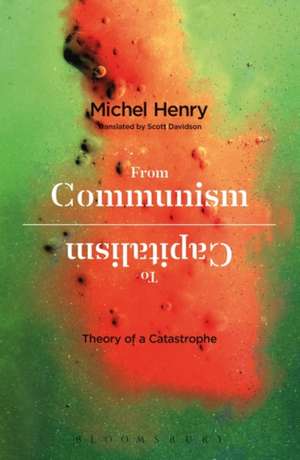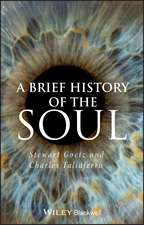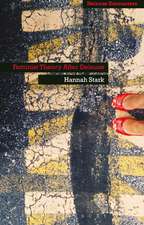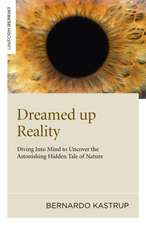From Communism to Capitalism: Theory of a Catastrophe
Autor Michel Henry Traducere de Professor Scott Davidsonen Limba Engleză Paperback – 22 mar 2017
| Toate formatele și edițiile | Preț | Express |
|---|---|---|
| Paperback (1) | 111.38 lei 3-5 săpt. | |
| Bloomsbury Publishing – 22 mar 2017 | 111.38 lei 3-5 săpt. | |
| Hardback (1) | 245.98 lei 3-5 săpt. | |
| Bloomsbury Publishing – 18 iun 2014 | 245.98 lei 3-5 săpt. |
Preț: 111.38 lei
Preț vechi: 121.84 lei
-9% Nou
Puncte Express: 167
Preț estimativ în valută:
21.31€ • 22.79$ • 17.77£
21.31€ • 22.79$ • 17.77£
Carte disponibilă
Livrare economică 27 martie-10 aprilie
Preluare comenzi: 021 569.72.76
Specificații
ISBN-13: 9781350009035
ISBN-10: 1350009032
Pagini: 144
Dimensiuni: 129 x 198 x 16 mm
Greutate: 0.16 kg
Editura: Bloomsbury Publishing
Colecția Bloomsbury Academic
Locul publicării:London, United Kingdom
ISBN-10: 1350009032
Pagini: 144
Dimensiuni: 129 x 198 x 16 mm
Greutate: 0.16 kg
Editura: Bloomsbury Publishing
Colecția Bloomsbury Academic
Locul publicării:London, United Kingdom
Caracteristici
Provides a framework for understanding the cause and significance of the recent global financial collapse
Notă biografică
Michel Henry (1922-2002) was a leading French philosopher and novelist. He was Professor of Philosophy at the University of Montpellier, France and author of five novels and numerous philosophical works.Scott Davidson is Professor and Chair of the Philosophy Department at Oklahoma City University, USA. He is the translator of Michel Henry's works: Material Phenomenology (2008), Seeing the Invisible (2009), and Barbarism (2012).
Cuprins
Translator's PrefaceIntroduction: The Failure of Socialism1. The Devaluation of the Individual2. Society and Class against the Living Individual3. Marxism as a Fascist Theory4. The Principle of Fascism5. The Living Individual and the "Economy"6. Life and Death in the Capitalist Regime7. The Empire of Death: The Technical-Economic World8. Death and PoliticsConclusion: The Rendezvous in SamarkandIndex
Recenzii
First published in France in 1991, From Communism to Capitalism is finally available for the English speaking public thanks to a superb translation by Scott Davidson.
Michel Henry remains 'the philosophers' philosopher' within the Continental tradition, having deconstructed Husserl, theorised affect, elevated immanence, and proclaimed a material phenomenology long before such gestures became commonplace. In From Communism to Capitalism, we are given access to how this maverick thinker of affect and life arrived at the political and economic implications of his thought at the decisive moment when Communism appeared to give way to the hegemony of late Capitalism.
Originally published in 1991, Michel Henry writes From Communism to Capitalism on the heels of the collapse of the Soviet Union. Thus From Communism to Capitalism goes from the failure of communism to the success of capitalism. But for Henry, the success of capitalism is only alleged. Capitalism is a failure because, like the Marxist thought that animated communism, the liberal thought behind capitalism eliminates subjective life and the living individual. Thus, and this is the most powerful claim of Henry's book, communism and capitalism "are only two figures of the same death." While From Communism to Capitalism extends the criticisms of capitalism and technology that Michel Henry had initiated in his 1987 Barbarism, it could be read as a companion text to Derrida's 1993 Specters of Marx.
Michel Henry remains 'the philosophers' philosopher' within the Continental tradition, having deconstructed Husserl, theorised affect, elevated immanence, and proclaimed a material phenomenology long before such gestures became commonplace. In From Communism to Capitalism, we are given access to how this maverick thinker of affect and life arrived at the political and economic implications of his thought at the decisive moment when Communism appeared to give way to the hegemony of late Capitalism.
Originally published in 1991, Michel Henry writes From Communism to Capitalism on the heels of the collapse of the Soviet Union. Thus From Communism to Capitalism goes from the failure of communism to the success of capitalism. But for Henry, the success of capitalism is only alleged. Capitalism is a failure because, like the Marxist thought that animated communism, the liberal thought behind capitalism eliminates subjective life and the living individual. Thus, and this is the most powerful claim of Henry's book, communism and capitalism "are only two figures of the same death." While From Communism to Capitalism extends the criticisms of capitalism and technology that Michel Henry had initiated in his 1987 Barbarism, it could be read as a companion text to Derrida's 1993 Specters of Marx.












